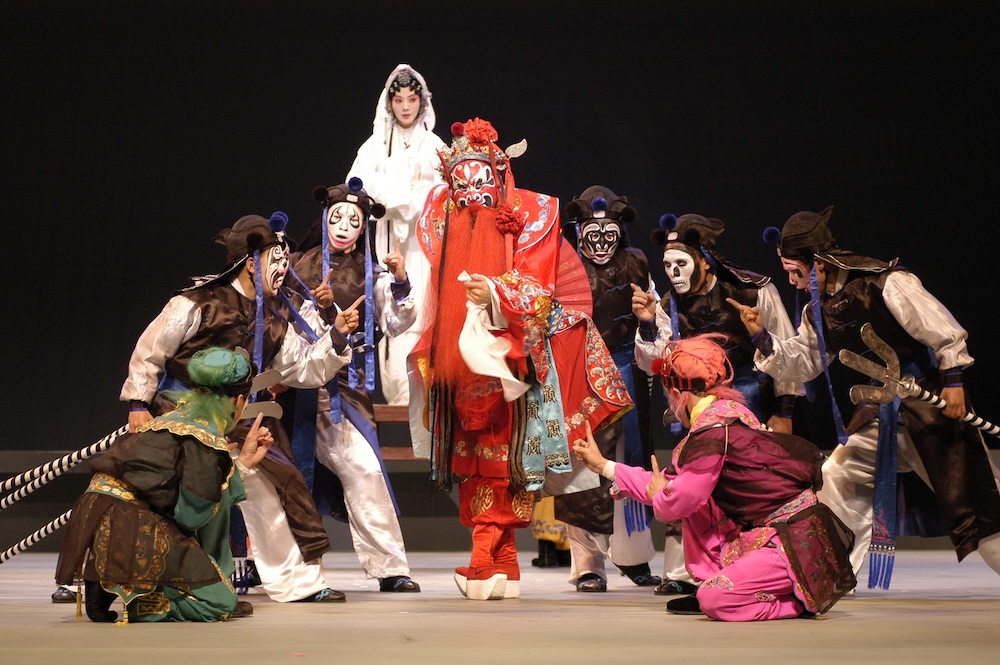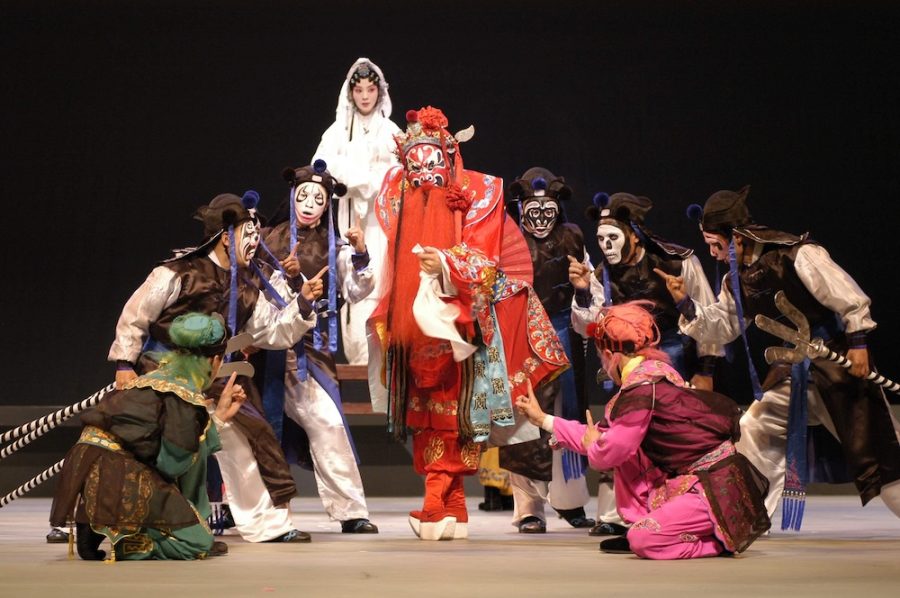Theatregoers in the Brazilian city of Rio de Janeiro will enjoy a rare treat today as the Jiangsu Performing Arts Group stages scenes from two treasured Chinese operas in honour of World Theatre Day, reports Brazilian daily newspaper Folha de S.Paulo.
Jiangsu Performing Arts Group, from Nanjing, will dazzle Rio crowds from 27 to 30 March before moving on to Salvador for a performance on 31 March. The nine-member troupe will be performing scenes from two operas: Legend of the White Snake, based on one of China’s Four Great Folktales and an apt choice during the Year of the Snake, and The Peony Pavilion by celebrated Ming dynasty playwright Tang Xianzu (1550–1615).
Both depict “the triumph of love over societal constraints,” Zhou Dongliang, the company head, explained to the Brazilian newspaper, “a love that transcends identity and prejudice.”
Chinese opera is rarely performed in South America. But despite the lack of familiarity, the visual elements of the genre, including ornate costumes and stylised but expressive mannerisms, can draw in any audience, who can then attune themselves to the melodic cadences and immersive aesthetics of “harmony between reality and illusion,” Zhou said. The empty spaces in Chinese opera, he added, “contain limitless, ethereal meaning,” unique to Eastern art.
The Peony Pavilion is a perfect introduction to the artform. Widely considered one of literature’s most memorable love stories and a milestone in Chinese culture, it is an excellent example of why Tang shares the same creative echelon as his Western contemporary, William Shakespeare.
[See more: Five Macao Arts Festival shows you don’t want to miss]
“[Tang’s] philosophy of supreme emotion broke the rigidity of Confucianism,” Zhou explained. “He brought the liberation of the human spirit into drama, building a worldview centered on emotion, which became a hallmark of the Ming era’s intellectual awakening and profoundly shaped Eastern theatrical aesthetics.” For the Brazilian performances, Zhou selected a celebrated scene from The Peony Pavilion that depicts the daughter of a powerful man dreaming of love for a poor scholar.
Performing a single scene may seem odd, but Tang’s magnum opus is rarely performed in full. Where Shakespeare’s longest play, Hamlet, has a run time of around four hours, The Peony Pavilion can top 22 hours, a marathon effort for any theatre group – or audience – brave enough to tackle all 55 acts.
The selected scene, an exploration of the young Du Liniang’s inner world, features the highly skilled, expressive performance of actress Gong Yinlei. “The fusion of music and dance [in the scene] evokes pathways through circular steps and cloud-shaped gestures” to create “landscapes in a sparse setting.” The “Broken Bridge” scene from Legend of the White Snake, meanwhile, centres on an intense moment when the star-crossed lovers must overcome an obstacle to their happiness, highlighting the use of acrobatic fighting often found in Chinese opera.
The celebration of World Theatre Day in Brazil will also include performances from Thailand, South Korea, Chile and others, including Brazilian groups from Rio, São Paulo and Minas Gerais, as well as tributes to Brazilian director Augusto Boal and more.
“We believe that this collaboration between continents is essential,” Jeff Fagundes, an actor, director and chair of the Brazil Center of the UNESCO-linked International Theatre Institute (ITI), told Folha.






